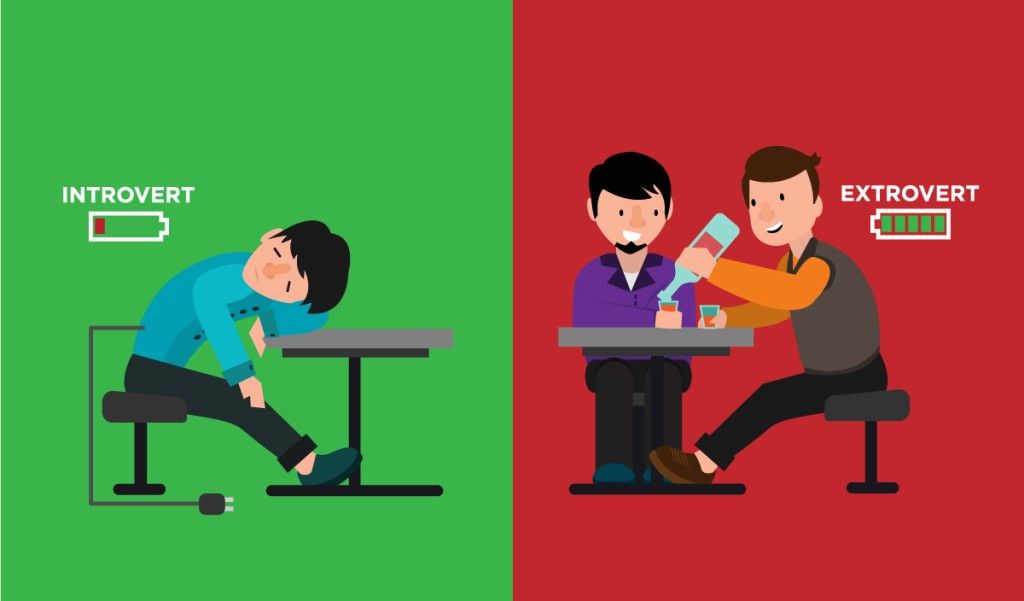Which Type Of Person Are You??
Jun 27, 2019 • 7 views
Your personality creates a lot of impact on the surrounding. We can identify the person is of which type based on his/her friends. Everyone in the world is having a unique personality,appearance, and Qualities. Comparing all of them we think about what type of personality we belong to?
There are five major personality types or known as the "five-factor model," everyone possesses.
1. Extroversion

People who are in extroversion gain a lot of energy from social activity. They're talkative and outgoing and they're comfortable in the spotlight. Others may view them as domineering and attention-seeking. They also have positive and negative sides. extroverts are often described as talkative, sociable, action-oriented, enthusiastic, friendly, and out-going. They also have a negative side which can be seeking attention, easily get distracted, and not able to spend time alone.
So if you feel you are an extrovert then check the below characteristics and identify whether they match you.

1.Have numerous interests
2.Likes to communicate by talking
3.Enjoys being at the center of attention
4.Tends to act first before thinking
5.Feels isolated by too much time spent alone and Enjoys group work
6.Looks to others and outside sources for ideas and inspiration
2.Agreeableness

Those who in agreeableness are honest, kind, and affectionate toward everyone. They are good at pro-social behavior and they are always committed to work. Other people may view them as overly passive. People are low in agreeableness have self-interest more than getting along with others. They are generally less concerned with others' well-being, and therefore less likely to go out of their way to help others. They have a tendency to manipulate their social relationships. They like to compete than to cooperate. There are exceptions, but in general, people who are concerned about others also tend to cooperate with them, help them out, and trust them.

You can see this type in a financial investor who is high in agreeableness. Studies show agreeable investors are least likely to lose money from risky trading. The investor has a personality that is associated with overconfidence which can lead an investor to take excessive risks.
3. Conscientiousness

People who are in conscientiousness are well-organized, dependable, self-sufficient and active. They prefer to plan things well in advance and have an aim for higher achievements. People who rank lower in conscientiousness may view those with this personality trait as stubborn and obsessive. Basically, it refers to your individual awareness of your unique thoughts, memories, feelings, sensations, and environment.

Your conscious experiences are constantly shifting and changing. While reading a book your consciousness may then shift to the memory of a conversation you had earlier with a co-worker. Next, it shifts to you some other thing like how uncomfortable your chair, etc... This shifting stream of thoughts continuously can change from one moment to the next, but your experience of having thoughts seems to be smooth and effortless.
4.Openness to Experience

People who rate high in openness are known for their broad range of interests and vivid imaginations. They are very curious to explore, creative and they usually prefer various routines. Others may view them as unpredictable and unfocused. The openness to getting experienced measures our acceptability to new ideas and experiences.

A high level of openness can lead a person to be more interested to read a novel and gain unconventional ideas and viewpoints. Such people are always willing to try out new activities that they were not experienced previously. People with less openness to experience will seek refuge in more familiar surroundings. They are more likely to pass up on opportunities to try new experiences, such as traveling to exotic destinations or making a drastic career change. They may be considered to be closed to experience.
5.Neuroticism

Neurotic people experience high emotional instability. They are more likely to react and are excitable. They have higher degrees of unpleasant emotions like anxiety and irritation to small things. Other people may see them as they are unstable and insecure. Neuroticism, one of the Big 5 personality traits, is typically defined as a tendency towards anxiety, self-doubt, depression, shyness, and other similar negative feelings.
Neuroticism may have provided evolutionary advantages, as well—paying more attention to negative outcomes could have helped certain early humans survive over others. In the present day, however, it may be a better choice to laugh at one's hang-ups rather than run away from them.
